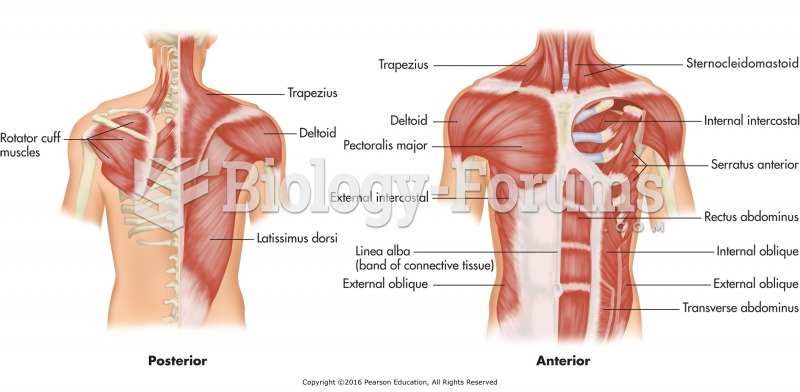|
|
|
The ratio of hydrogen atoms to oxygen in water (H2O) is 2:1.
The strongest synthetic topical retinoid drug available, tazarotene, is used to treat sun-damaged skin, acne, and psoriasis.
Walt Disney helped combat malaria by making an animated film in 1943 called The Winged Scourge. This short film starred the seven dwarfs and taught children that mosquitos transmit malaria, which is a very bad disease. It advocated the killing of mosquitos to stop the disease.
Aspirin may benefit 11 different cancers, including those of the colon, pancreas, lungs, prostate, breasts, and leukemia.
The effects of organophosphate poisoning are referred to by using the abbreviations “SLUD” or “SLUDGE,” It stands for: salivation, lacrimation, urination, defecation, GI upset, and emesis.
 Calcium channels and muscle contraction: (a) Calcium channels open as the action potential travels ...
Calcium channels and muscle contraction: (a) Calcium channels open as the action potential travels ...
 Since 1991, General Motors engines have been equipped with slightly (1/8 inch or 3 mm) longer spark ...
Since 1991, General Motors engines have been equipped with slightly (1/8 inch or 3 mm) longer spark ...





